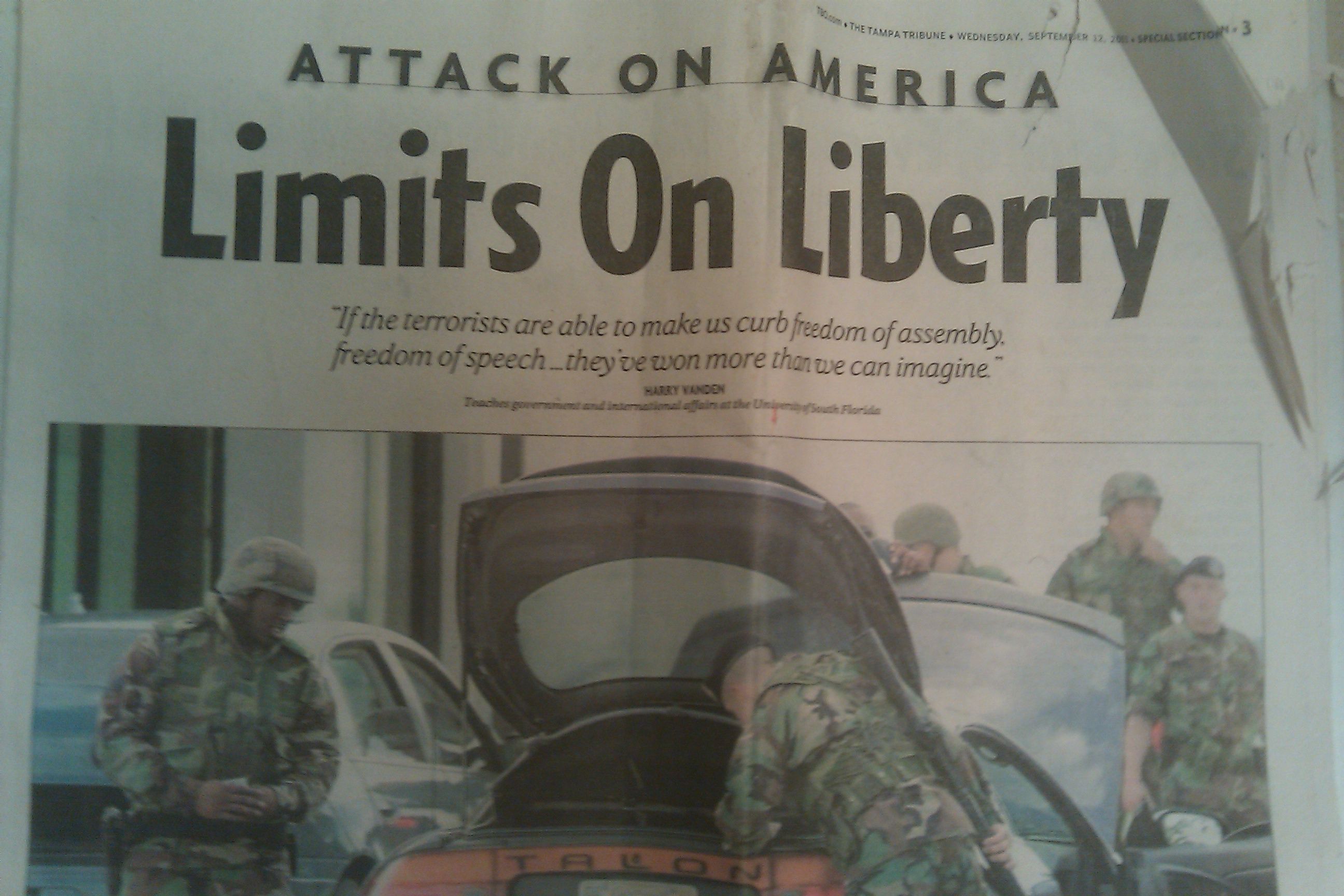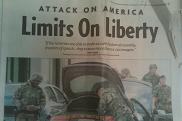There's no question 9/11 changed everything. No one can say their life was not changed seeing the planes slam into the World Trade Center. Much of the world had lived with the threat of terrorism which until 9/11 Americans felt secure being protected by the oceans. In an instant on September 11, 2001 our security ended. For many years, our fear was the threat of an enemy country somehow delivering a nuclear weapon, and 9/11 showed us that a small group of terrorists could blow themselves up and present a greater threat than any established country.
After 9/11 the George W. Bush administration instituted a number of policies aimed at protecting us from further attack. Many say these policy initiatives went too far in that they sacrificed freedoms in the name of fighting terrorism. What do you think?
September 11, 2001 will always stand out as one of the most traumatic days in the lives of all Americans. Everyone remembers where they were when news of the first planes hitting the twin towers hit. In the hours and days that followed, it felt like everything in the news was another scare from terrorists. No matter what our political stripes were, we wanted the government to protect us. President Bush reassured the country that his government would protect us, and shortly after 9/11 Bush had something like a 90% approval rating.
Most people will never know the dynamics of what went on in the White House, but we do know that Dick Cheney had so much influence it's a wonder we didn't elect him President. Cheney I believe has a very dark, paranoid view of the world and 9/11 fed this monster. Cheney also has the view that the President, not Congress or the Supreme Court, has absolute power to essentially do what he wants or feels is necessary. Cheney is not a lawyer, but as Vice President he brought along lawyer David Addington who shared his views on expanded presidential power.
Right after 9/11 Cheney and Addington, with the help of John Yoo from the Justice department, drafted legislation that granted the president expanded powers to fight terrorism anywhere in the world, including in America. The Senate, controlled by Democrats and knowing they'd been burned by overzealous presidents in the past during wartime, rejected this legislation. Undeterred, the administration drafted another document with John Yoo's help, this time in secret that granted the same power to the President that Congress rejected. The first power that was granted to the President had to do with prisoners captured who were suspected terrorists. These people would be held in military prisons outside the US and they could be interrogated using any means necessary. They could be tortured. They'd never get near a court. Torture would be cleaned up to be called "harsh interrogation techniques." Thus began Guantanamo.
The next set of policies to combat terrorism were surveillance. With another series of secret documents and legal maneuvering, the administration authorized warrantless wiretaps, or essentially spying on American citizens. In both the cases of authorizing torture and spying on Americans there would be no due process and no "innocent until proven guilty". These policies were shaped in secret by a small inner circle of men led by Cheney.
After the start of the Iraq war (a whole other story) lawyers in the Justice Department begin to raise questions about the secret policies. Attorney General John Ashcroft needed to re-authorize the eavesdropping on Americans act and he refused to after hearing arguments from the lawyers. He then fell ill and needed to be hospitalized, The President sent his White House Council Alberto Gonzalez to the hospital to get Ashcroft to sign off on re-authorizing from his hospital bed. Ashcroft, whose conservative credentials can rival anyone's, refused but the President decided to sign off on the order anyway, and many in the Justice Department threatened to resign. Bush finally backed down and they made changes in the language of the order to make it acceptable to the Justice Department.
After Bush is re-elected in 2004, news about treatment of prisoners at Abu Ghraib in Iraq caught the attention of Congress. Conservatives like John McCain and Lindsay Graham spoke out against torture, and legislation was drafted outlawing these harsh interrogation techniques. Bush threatened to veto the legislation, but it passed the Senate 90-9 despite heavy lobbying by Cheney of usual reliable conservatives. Bush was forced to sign it the legislation outlawing torture, but the legal expert David Addington added on what is called a "signing statement." In plain English, the signing statement states that the President is signing this into law but he doesn't have to obey it, because he is Commander-in-chief. This set in motion a pattern of attaching signing statements to bills by the Bush administration, which allowed the executive branch to continue harsh interrogation techniques and warrantless wiretapping even when Congress had passed legislation to curtail it.
The effects of the 9/11 attacks are still with us today. We remember 9/11 every time we go to the airport and have to be subject to the security checks. We will also continually be reminded of the tension between keeping our population safe and defending he freedoms that we hold so dear.








SUBMIT A COMMENT